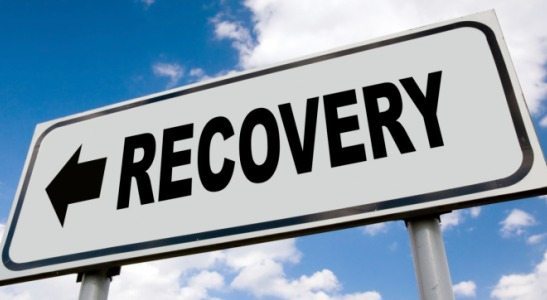Despite positive growth, full economic recovery is still two years away for the nation and at least three years away for Arizona. That message was delivered today by top economists from the W. P. Carey School of Business at Arizona State University. The experts spoke at the annual Economic Outlook Luncheon sponsored by the Economic Club of Phoenix.
“Arizona lost 314,000 jobs during the recession, and we’ve only added back around 25 percent of those,” explained Research Professor Lee McPheters, director of the JPMorgan Chase Economic Outlook Center at the W. P. Carey School of Business. “We’ll probably pick up about 48,000 jobs this year in the state, but it will be three to four years until we can expect to see full recovery.”
McPheters says Phoenix is on its way to a significant rebound, having ranked No. 4 among the nation’s large cities for total job growth from March 2011 to March 2012. Arizona is already back to its position as a Top 10 job-growth state, ranking No. 8 for the same time period. Health care and hospitality are two of the fields doing relatively well in the recovery here.
“Arizona’s recovery will be slow, but it appears sustainable as long as the U.S. economy stays on track,” said McPheters. “Businesses should plan now for long-term improvement.”
Nationally, McPheters says the country has already gained back 40 percent of the 8.9 million jobs it lost during the recession.
However, Robert Mittelstaedt, dean and professor of management at the W. P. Carey School of Business, said, “Many experts are still looking at the national-debt situation as an issue. April was the first time since September 2008 that we’ve had a monthly surplus, and that is not likely to be repeated anytime soon.”
Mittelstaedt points out that the recent peak for the U.S. deficit was 10.1 percent, which happened in 2009. The last time the national debt was at that level or worse was all the way back in 1945.
Professor Dennis Hoffman, director of the L. William Seidman Research Institute at the W. P. Carey School, gave an analysis of the state’s budget situation. He says taxes on individuals are relatively low in Arizona, and the public pensions are generally solvent. Also, the recent upswing in the economy has helped provide some stabilization for incoming state revenue, even though tax collections as a share of income have continued to fall for years. However, the current clarity in the fiscal picture will start to get cloudy again.
“Next year, the temporary sales tax will expire, and within five years, the Arizona corporate income-tax rate will be about 30 percent lower than it is today,” explained Hoffman. “This presents some fiscal challenges that will have to be managed.”
As for the housing market, Mike Orr, director of the Center for Real Estate Theory and Practice at the W. P. Carey School, delivered some good news for hard-hit homeowners.
He said, “Home prices are on the rise in the Phoenix area, and we expect that trend to continue.”
The median single-family home price already went up more than 20 percent from March 2011 to March 2012. The bounce was from $112,000 last March to $134,900 this March.
“Most homes under $250,000 are attracting multiple offers within a couple of days, and there are far more buyers than sellers,” said Orr. “We’ve also seen a big shift in the types of transactions in the market from a focus on lender-owned home sales to a rise in normal resales, new-home sales, investor flips and short sales.”
The number of foreclosures completed this March was down a whopping 60 percent from last March. Also, the number of delinquencies on loans – those who are behind on payments, but not in foreclosure – is down 51 percent. All of this means the supply of lower-priced homes in the area is down to less than a month’s worth of inventory, and new-home construction is cranking up to try to help meet the demand.
Today’s Economic Outlook Luncheon was held at the Westin Kierland Resort & Spa in Scottsdale. The Economic Club of Phoenix hosts the Economic Outlook Luncheon every spring, as one of its opportunities for Valley business leaders and others to network and engage. The club was founded by a group of prominent business executives called the Dean’s Council of 100, in conjunction with the W. P. Carey School of Business. More information about the club can be found at wpcarey.asu.edu/ecp.




